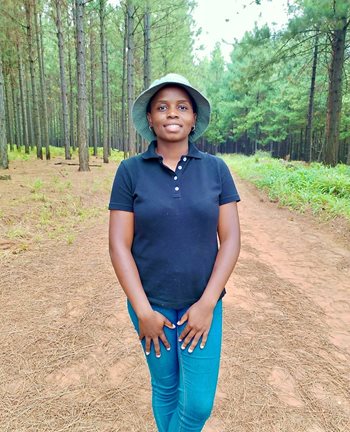Three Nelson Mandela University Law role-players closely linked to SA Application re Gaza Strip
On 26 January 2024, the International Court of Justice (the ICJ) delivered its judgment in the Application of the Convention on the Prevention and Punishment of the Crime of Genocide in the Gaza Strip (South Africa v Israel).
By a majority of 15 to two judges, the ICJ ordered Israel to take all reasonable measures within its power (so-called provisional measures) to prevent a genocide against the people of Palestine in the Gaza Strip.
ProfessorsTembeka Ngcukaitobi and Max du Plessis, two of South Africa’s legal representatives in the case, are adjunct professors in the Faculty of Law, Nelson Mandela University, South Africa.
Nelson Mandela University Chemistry PhD student international global challenges award
Doctoral student in Chemistry Olwethu Poswayo has won the 2023 Global Challenges University Alliance (GCUA) 2030 award.
First prize winner Olwethu Poswayo, together with second and third prize winners Shaik Abdullah, and Michael Gräf.
Her project titled, “Optimization of utilization of biomass for production of bio-oil and its hydro-processing to produce quality biofuel” scooped the first prize of 3500 Euro.
She also won an all-expenses paid trip to Sweden to present a seminar on her research during the GCUA’s meeting from 30 January to 1 February at Haga Slott, Enköping, Sweden. To watch her video submission, click here.
Research on pine trees shows hope for employment
 Award-winning research by a young forester from Mpumalanga into harvesting biomass manually after pine trees have been felled has been presented at an international conference.
Award-winning research by a young forester from Mpumalanga into harvesting biomass manually after pine trees have been felled has been presented at an international conference.
Thandekile Ncongwane, 28, won a Celebrating Excellence award from Nelson Mandela University in November for her Master’s treatise on this subject, which she aced with a score of 93%.
Ncongwane studied forestry at the George Campus of Nelson Mandela University, and graduated with her Master’s degree in technology in April this year.
Originally from Schoemansdal in Mpumalanga, she now works at York Timbers in Sabie, in the same province.
Her research investigated the recovery and productivity of pinus patula biomass after being partially harvested. It looked at the quantity of collectable tree material left behind.
“After the primary logs are harvested, there is biomass left behind. This consists of logs that may have been cut to the wrong size, or are broken, as well as other organic material such as branches, needles, cones and twigs,” she explains.
Some of this is left in the field while a certain amount can be repurposed as a source of energy.